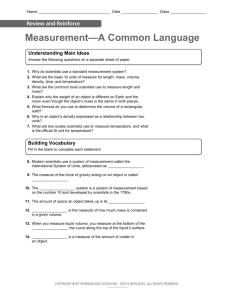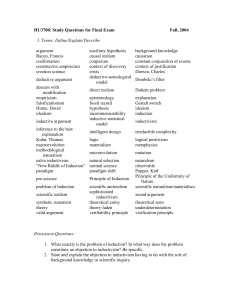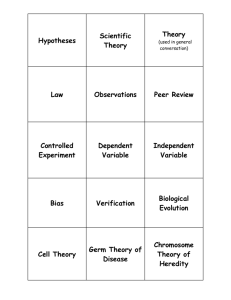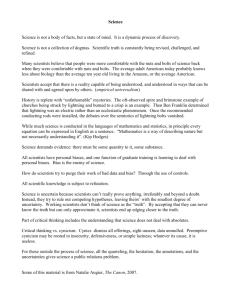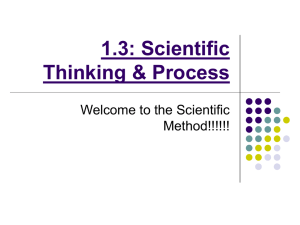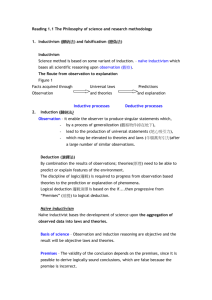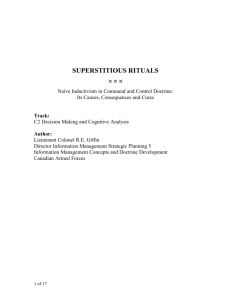Other Problems of Inductivism
advertisement
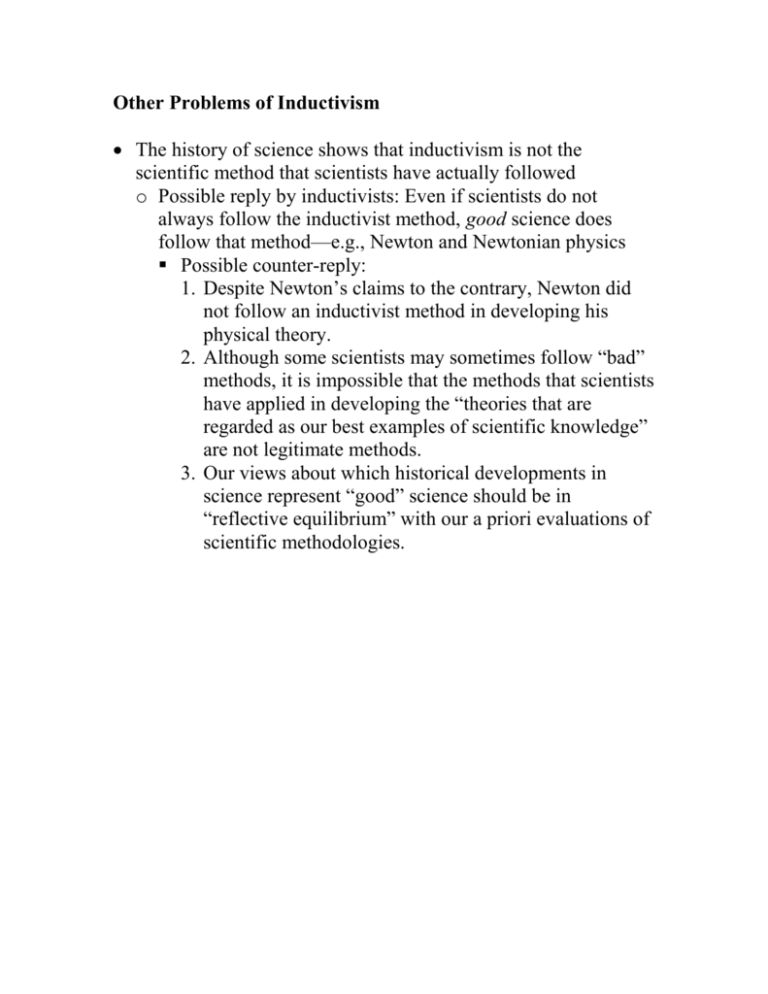
Other Problems of Inductivism The history of science shows that inductivism is not the scientific method that scientists have actually followed o Possible reply by inductivists: Even if scientists do not always follow the inductivist method, good science does follow that method—e.g., Newton and Newtonian physics Possible counter-reply: 1. Despite Newton’s claims to the contrary, Newton did not follow an inductivist method in developing his physical theory. 2. Although some scientists may sometimes follow “bad” methods, it is impossible that the methods that scientists have applied in developing the “theories that are regarded as our best examples of scientific knowledge” are not legitimate methods. 3. Our views about which historical developments in science represent “good” science should be in “reflective equilibrium” with our a priori evaluations of scientific methodologies. The inductivist requirement that data be chosen without preconceptions or background knowledge is neither realistic nor desirable because— o In order to apply the Principle of Induction—which says that the phenomena being investigated must be observed in a large number of cases and in a wide variety of situations— scientists must use their background knowledge in deciding which variations are relevant and which are not. o The accuracy of experimental techniques depends on scientists’ being able to identify and minimize extraneous influences, which requires them to use their background knowledge. o Modern science would be impossible without relying on a great deal of accepted scientific beliefs—e.g., to design sophisticated measuring and detection instruments, like radio-telescopes. Even if inductivists could solve (or dissolve) the Problem of Induction, inductivism would still run afoul of the “New Riddle of Induction.” o “New Riddle of Induction”: On what grounds can we rule out scientifically illegitimate concepts like “grue.” o Inductivism fails to answer the preceding question satisfactorily.



